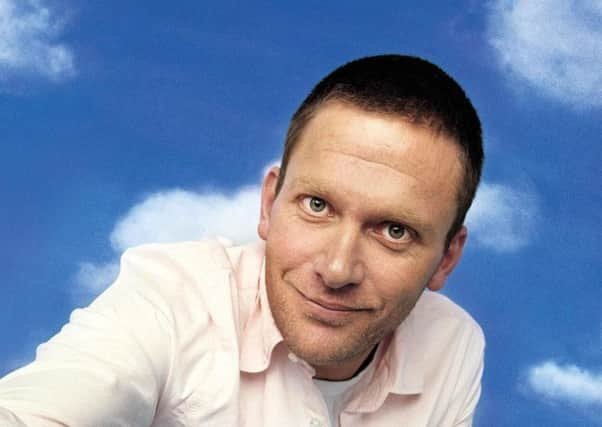Anthony Clavane: Big Brother had important things to say about our celebrity-obsessed pop culture


Pull the other one, I hear you say. The strange scene, made even more bizarre by the presence of an apartment wall between them – they were unable to see each other and communicated only through a voice-activated social media platform – came during the first episode of Channel 4’s latest are-you-kidding-me-whatever-will-they-think-of-next show The Circle.
And you thought Naked Attraction made for uncomfortable viewing.
Advertisement
Hide AdAdvertisement
Hide AdThe producers reckon the new reality programme is all about asking “provocative questions about modern identity, how we portray ourselves and how we communicate through social media”. To me it appeared to be all about eight vain, narcissistic, conniving, deceitful, beautiful young things trying to become the most-liked member of their group and make off with a £50,000 prize. I mean, it was, like, so cringe.
The premise of the show out-Charlie-Brookers Charlie Brooker. Not even his brilliantly warped mind could have written a Black Mirror episode which confines a group of fame-hungry fakes to separate flats in an apartment block for three weeks and exposes their lying and cheating ways – expressed through the disembodied interactions of a specially-designed app called The Circle – to a horrified, if enthralled, nation. Bake Off it most certainly isn’t.
Still, this is the column that likes to keep abreast of popular culture. To dip its toe, from time to time, into the zeitgeist. To get down, as they say, with the kids. And it is interesting to note that in the week The Circle was launched, Big Brother was finally consigned to the big diary room in the sky.
Farewell then, Big Brother. After 18 controversy-splattered years your time is up. Who can forget Nasty Nick Bateman, the late Jade Goody and George “Shall I be the cat?” Galloway purring at a startled Rula Lenska as he sipped menacingly from a saucer of milk? It was also, like, so cringe – but, in comparison to the latest cult TV show on the block, so innocent. It stretched way beyond the shelf-life of most reality programmes and, if I am honest, became something of a guilty pleasure.
Advertisement
Hide AdAdvertisement
Hide AdYes, I admit it. As Orwell’s Winston Smith said, in a somewhat different context, I love Big Brother. I enjoyed watching the relationships, the rivalries, the romances. And, of course, the spats. It even had important things to say about our celebrity-obsessed popular culture. This is how Stephen Lambert is trying to sell The Circle. The head of Studio Lambert, who dreamed up this dystopian nightmare, insists it is some kind of social experiment, revealing the many ways we can be deceived online. “I think it will bring to the television viewers an insight into what is going on in social media that will feel very fresh,” he told a broadsheet newspaper. “That’s what we’re excited about: reflecting what’s so big in the world.”
Although a few episodes are not enough to form a judgement, my hunch is that it will be less about reflecting the anxieties and insecurities of the millennial generation than manipulating them. Its very existence raises troubling questions about the moral state of this country’s social media-obsessed youth. As a result of pretending to be a woman called Kate – he used a photograph of his girlfriend as his profile – the aforementioned young lad was rewarded by winning the first round and going on a “date” with a Jack the lad – who then fantasised about giving him a “cheeky kiss”. The message is clear: mendacity pays.
It can only be a matter of time before one of the contestants shouts: “I’m as mad as hell and I’m not gonna take this anymore!” As Peter Finch did in the 1976 classic film Network. Now there was an entertainment that asked provocative questions about modern identity, attacking the commercialisation of a celebrity-obsessed media.
My money’s on Freddie, the gay man pretending to be straight, who has a penchant for screeching at the top of his lungs. The only problem is: on the internet no one can hear you scream.